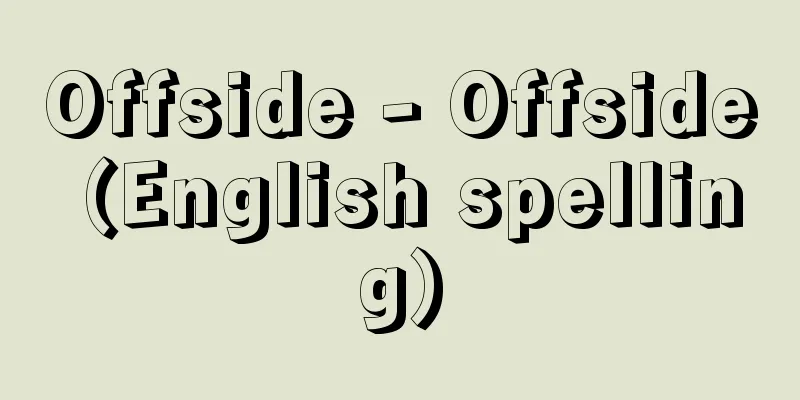magikē (English spelling) magike

|
...For the first meaning, see the entry on magic, and for the second, see the entry on sorcery. The English word magic comes from the Greek word magikē, meaning the art of magos. Magos (in Latin, magus, the plural is magi) refers to the priestly class of the Median Empire and Zoroastrianism, who communicated with the invisible world by controlling fire and demonstrated various magical and magical powers. *Some of the terminology explanations that mention "magikē" are listed below. Source | Heibonsha World Encyclopedia 2nd Edition | Information |
|
…第1の意味については〈奇術〉の項目を,第2の意味については〈呪術〉の項目を参照されたい。 マジックという英語は,ギリシア語のマギケmagikēつまり〈マゴスmagosの技術〉に由来する。マゴス(ラテン語ではマグスでその複数形がマギ)とはメディア王国やゾロアスター教の神官階級を指し,彼らは火を統御することにより不可視の世界と交わり,さまざまな神変加持力を発揮していた。… ※「magikē」について言及している用語解説の一部を掲載しています。 出典|株式会社平凡社世界大百科事典 第2版について | 情報 |
Recommend
Henan [town] - Kanan
A former town in Monou County in the central easte...
Shinjo [village] - Shinjo
A village in Maniwa County, northern Okayama Prefe...
Anarcho-Syndicalism - Anarcho-Syndicalism
A movement and ideological trend that emerged from...
Americo-Liberians (English spelling)
… [Nobuyuki Hashimoto] [Residents, Society] 90% o...
Etienne, C.
...Berengario da Carpi (?-1530?) then wrote the f...
Gymnocarpium oyamense (English spelling) Gymnocarpium oyamense
…[Masahiro Kato]. . . *Some of the terminology th...
Halberstadt - Halberstadt (English spelling)
A city in the state of Saxony-Anhalt in central G...
Fundamental periodic parallelogram - Fundamental periodic parallelogram
…That is, if ω 1 and ω 2 are complex numbers diff...
Financial world
At the national and local levels, it is a forum fo...
Vanga shrike
A general term for birds belonging to the Vangida...
down bow
…It was Corelli and Vivaldi who first explored th...
Childhood Cancer - Childhood Cancer
So-called childhood cancer refers to pediatric ma...
Drake, Sir Francis
Born: circa 1543, Devonshire Died January 28, 1596...
Upa-lupaka - Upa-lupaka
...However, there are several varieties of Prakri...
Rebellion of the Kibi Clan
The Nihon Shoki contains three legends. In the ent...









